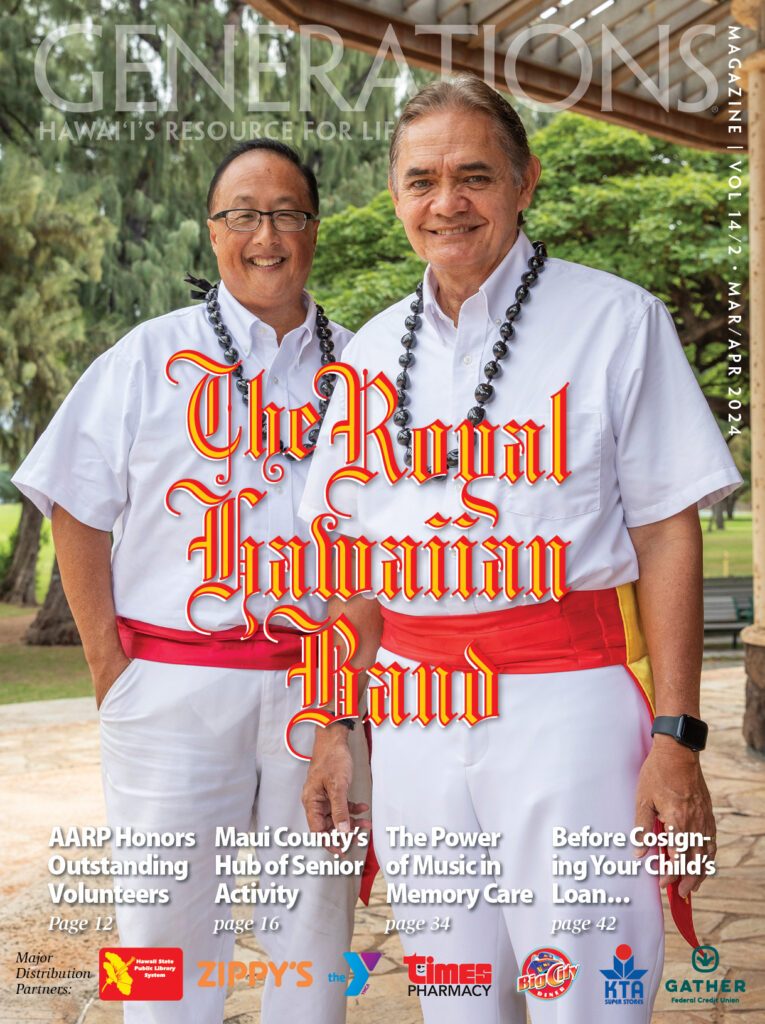Estate planning is the process of protecting that which is important (far beyond simply financial or physical assets) and then passing those important things on to our loved ones and future generations. Many concepts that are central to Hawaiian culture are particularly applicable to estate planning. Starting with the concept of ‘ohana (a very inclusive notion of family) all the way through lōkahi (a sense of unity — especially appropriate at the passing of a loved one), estate planning and the culture of our Islands interweave to form a rich tapestry of aloha.
The term ha‘aha‘a describes an attitude of humility, which promotes family harmony at stressful times. Stress may arise in dealing with the emotions associated with illness and death, and it may arise in dealing with the distribution of the assets of the deceased. It takes a measure of humility for family members to form closer bonds in light of these trials.
Sometimes, dealing with issues surrounding the disposition of a loved one’s remains, much less the disposition of assets, requires family members to talk out differences and come to consensus regarding what is the right, or pono, thing to do, as well as respecting the wishes of the deceased and the living. It is not uncommon for different family members to have different views of what a deceased person’s wishes were in various contexts. This may result in disagreements that can be both heated and destructive.
A complicating factor is that all of the disputing parties may be right, on some level. The deceased may have had many conversations with different members of the ‘ohana over the course of many years. It is easy to see how one family member could remember instructions given on one date that conflict with instructions given to another family member on another date. If both family members can come together through the process of ho‘oponopono, or making things right through talking out differences, a consensus may be reached that is healing and positive for all involved.
 Ho‘oponopono is a delicate process, and a successful conclusion may depend on the leadership of an experienced individual who can help family members clearly express their views and then validate those views so that all involved can both understand and respect the feelings and positions being communicated. Although ho‘oponopono may be employed after the fact in resolving disputes, it can also be used while the senior family member is still alive to head off disputes and instill unity in the family, who will hopefully have a clear memory of what was communicated during the ho‘oponopono process.
Ho‘oponopono is a delicate process, and a successful conclusion may depend on the leadership of an experienced individual who can help family members clearly express their views and then validate those views so that all involved can both understand and respect the feelings and positions being communicated. Although ho‘oponopono may be employed after the fact in resolving disputes, it can also be used while the senior family member is still alive to head off disputes and instill unity in the family, who will hopefully have a clear memory of what was communicated during the ho‘oponopono process.
Finally, the concept of mālama, or caring for and perpetuating one’s legacy, infuses and motivates Hawaiian-style estate planning. This extends from caring for one’s family to caring for one’s community through charitable giving. People from Hawai‘i tend to be generous when it comes to giving back to organizations that have benefited their families, such as hospice providers, hospitals, and church-related organizations.
Remembering our root values helps to ensure that we are leaving a legacy of aloha.
SCOTT MAKUAKANE, Counselor at Law
Focusing exclusively on estate planning and trust law.
www.est8planning.com
808-587-8227 | maku@est8planning.com

